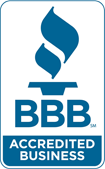
Alabama Lawyers for Bankruptcy Filers
If you want to file for Chapter 7 bankruptcy, you will need to complete certain forms to find out whether you are eligible to file. Only those who have income below the median or who pass the “means test” are eligible to file for Chapter 7. Among the forms you must complete when your income is above the median income is Form 122A, which tells you whether you pass the means test. At Grainger Legal Services, our labama bankruptcy attorneys can guide individuals through the Chapter 7 process, including completing Form 122A.
Form 122A and the Chapter 7 Means Test
Chapter 7 is only available to people who have less than the median income for the state or who pass the means test. There are three forms that may need to be completed to determine whether you pass this test: Form 122A-1, Form 122A-1 Supp., and Form 122A-2.
The first form, 122A-1, determines whether your income is below the median income in Alabama. You will need to give the court information about all sources of income, how much income you have, your tax filing status, and your marital status.
Reporting your income for the full six months before you file for bankruptcy can get complicated for some people. The monthly income you must report includes not just wages and salary, but also alimony and maintenance, business income, unemployment compensation, pension or retirement income, interest, and royalties. You must then multiply your monthly income by 12 and compare this annual income figure to Alabama’s median income. You only need to fill out the other two forms if your income is not below the median income.
If your income falls below the median income, you are eligible to file for Chapter 7 bankruptcy, and there is no presumption that you are abusing the bankruptcy system. The supplemental form determines whether you are exempt from the means test. The only people who have greater than the median income who do not have to pass the means test are disabled veterans, those with mostly business debts, and certain members of the National Guard or armed forces reserve.
The third form, Form 122A-2, is the final step in determining whether you pass the means test. Basically, if you lack the income required to pay back your creditors, you can legitimately file for Chapter 7 bankruptcy. As part of this calculation, you can subtract the amount of your spouse’s income that is not used to pay for monthly expenses if you are not filing for a joint bankruptcy. The result is a marital adjustment deduction. You may also deduct certain living expenses from income based on IRS National and IRS Local Standards. You can also deduct a certain sum for other expenses, such as taxes, union dues, life insurance, education for a child with special needs, childcare, mortgage, and health care. If you have enough income to fund a Chapter 13 debt repayment plan, you usually cannot file for Chapter 7.
People who do not pass the means test may still be able to apply for Chapter 7 if there are additional expenses that are not listed on Form 122A but that are truly necessary and reasonable to support your family.
Consult an Alabama Attorney for Your Bankruptcy Proceeding
Chapter 7 bankruptcy is intended to help people who are truly unable to pay off debts, and the means test is designed to separate those people from others who are merely unwilling. However, the calculations that must be made can be complex. Advice and representation from an experienced attorney may make a difference to your calculation. At Grainger Legal Services, our Alabama bankruptcy lawyers can counsel people who need to reorganize their finances. Our offices are located in Montgomery, Prattville, and Troy. Contact us at (334) 260-0500 or online. We offer a free consultation to discuss your situation.


 Attorney Charles Grainger possesses decades of legal experience focused on debtor-creditor law, bankruptcy, and business law. His legal work is designed to help clients overcome debt and secure a stronger financial footing. He also provides legal services to entrepreneurs and business owners. Grainger Legal Services takes a comprehensive approach to debt relief and financial education for clients in south-central Alabama. [
Attorney Charles Grainger possesses decades of legal experience focused on debtor-creditor law, bankruptcy, and business law. His legal work is designed to help clients overcome debt and secure a stronger financial footing. He also provides legal services to entrepreneurs and business owners. Grainger Legal Services takes a comprehensive approach to debt relief and financial education for clients in south-central Alabama. [ 


